Key takeaways
- More than three in five Americans continue to support President Biden’s Build Back Better economic proposal.
- A majority of Americans support Congress raising the debt ceiling.
- A delay in Social Security payments and veterans’ benefits are seen as the most concerning and most likely potential consequences of Congress failing to reach a new deal to raise the national debt ceiling.
Majorities Continue to Support the Federal Government Doing More to Help Regular People
A majority of Americans continue to be more concerned the federal government will not do enough to help regular people impacted by the pandemic and feel the government needs to do more to help regular people.
- Among independents, 59% are concerned the government won’t do enough and 64% support it doing more.
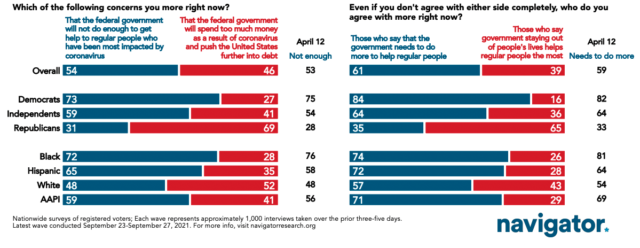
Support for Biden and Democrats’ New Economic Plan Is High and Does Not Change When Pay-Fors Are Introduced
Three in five Americans support Biden and Democrats’ new plan with (61%) or without pay-fors introduced (61%).
- Three in five independents also support the plan with (61%) or without pay-fors (60%).
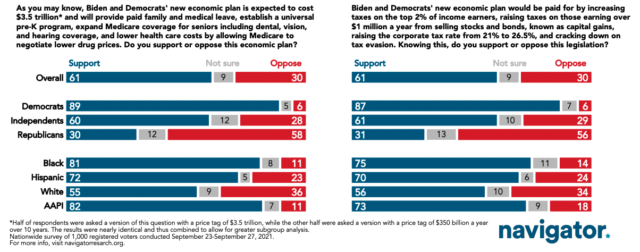
Two in Three Say Passing the Economic Plan Is Urgent
In the context of needing to pass the spending bill in order to pass the bipartisan infrastructure bill, a majority of Americans say passing the spending bill is urgent, including 69% of independents.
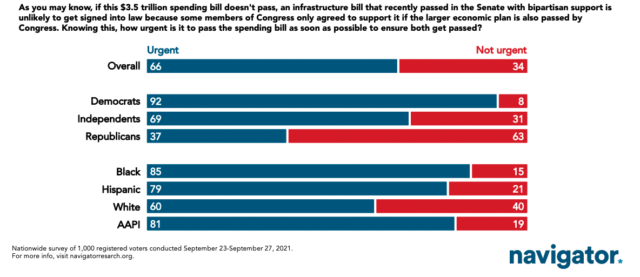
Majorities Side More With Range of Democratic Arguments in Support of Spending Plan than Republicans Who Oppose
Among independents, focusing on how the plan helps all Americans, rather than specific groups like the elderly and children, and highlighting how it will reduce the influence of special interests are the strongest lanes.
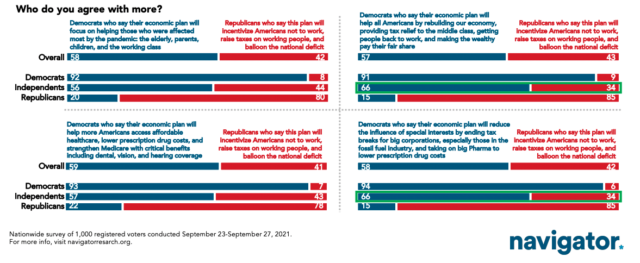
Nearly Three in Five Support Congress Raising Debt Ceiling
Intensity of support is also strong: 36% “strongly support” Congress passing a bill to raise the debt ceiling.
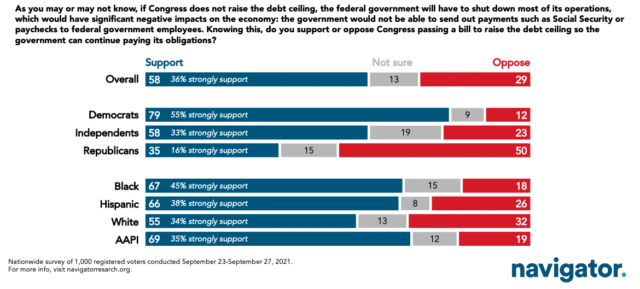
Independents & Persuadables Most Concerned About Job Losses, Delayed Social Security and Veterans’ Benefits
Independents and economically persuadable Americans, much like Americans broadly, are most concerned about a loss of millions of jobs and a delay in Social Security and veterans’ benefits if Congress fails to raise the debt ceiling.
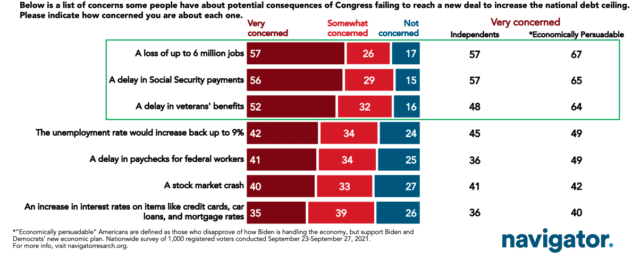
Delays in Social Security Payments and Veterans’ Benefits Seen as Most Likely and Concerning Effects of Default
Half of respondents were shown a list of potential consequences if Congress fails to reach a new deal on the debt ceiling and asked how concerned they were about each item, while the other half was shown the same list and asked how likely it is that each consequence could happen. Delayed Social Security payments topped both lists, followed closely be a delay in veterans’ benefits. Most concerning (but less likely) is a loss of 6 million jobs.
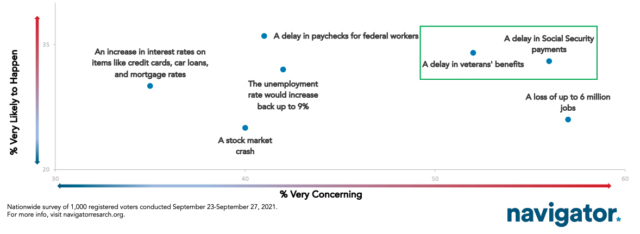
Reminding Americans Republicans Voted to Raise the Debt Ceiling Three Times Under Trump Is Most Effective Rebuttal
Against a conservative argument criticizing Democrats for irresponsible spending, a progressive response that highlights the three times Republicans voted to raise the debt ceiling under Trump is most effective. A response that also focuses on Republicans voting for this spending is more compelling than the conservative message.
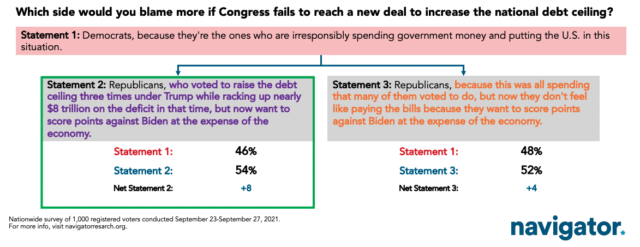
Political Gains, Stopping Biden at All Costs, and Putting Livelihoods at Risk Describes Republican Actions on Debt
Roughly one in three Americans say “only interested in political gains,” wanting “to stop Biden at all costs,” and “putting American’s livelihoods at risk” best describe Republicans’ actions if they fail to come to a new agreement.
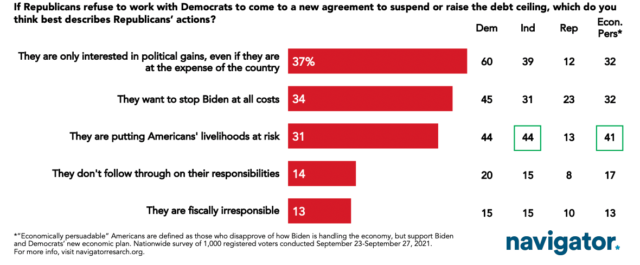
About The Study
This release features findings from a national online survey of 1,000 registered voters conducted September 23-27, 2021. Additional interviews were conducted among 101 Hispanic voters, 100 African American voters, 101 independents without a partisan lean, and 77 Asian American and Pacific Islander voters.

